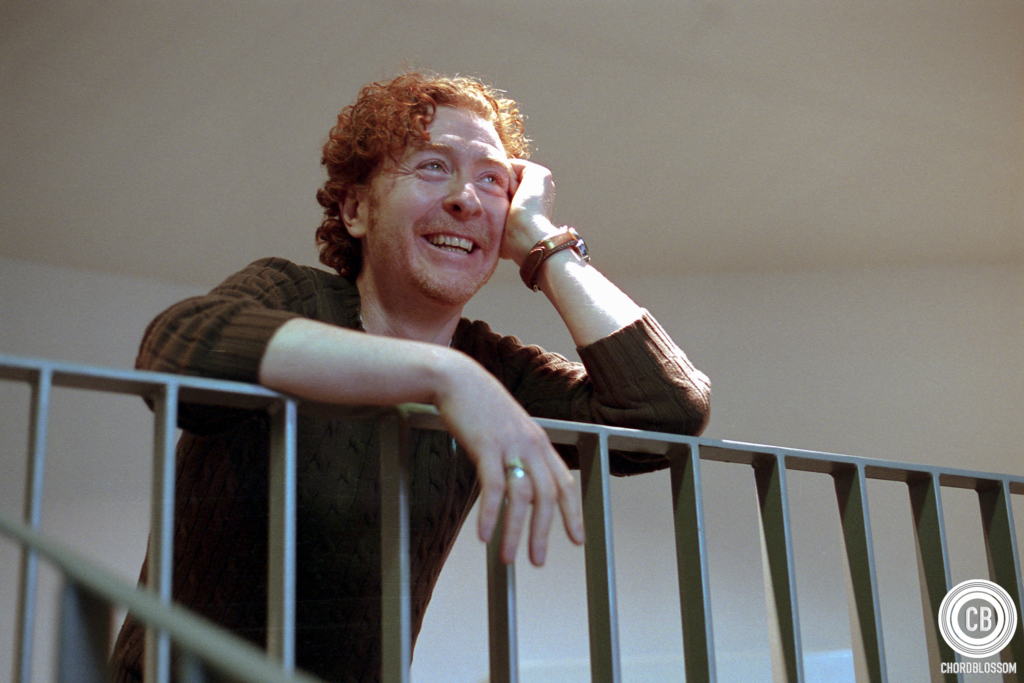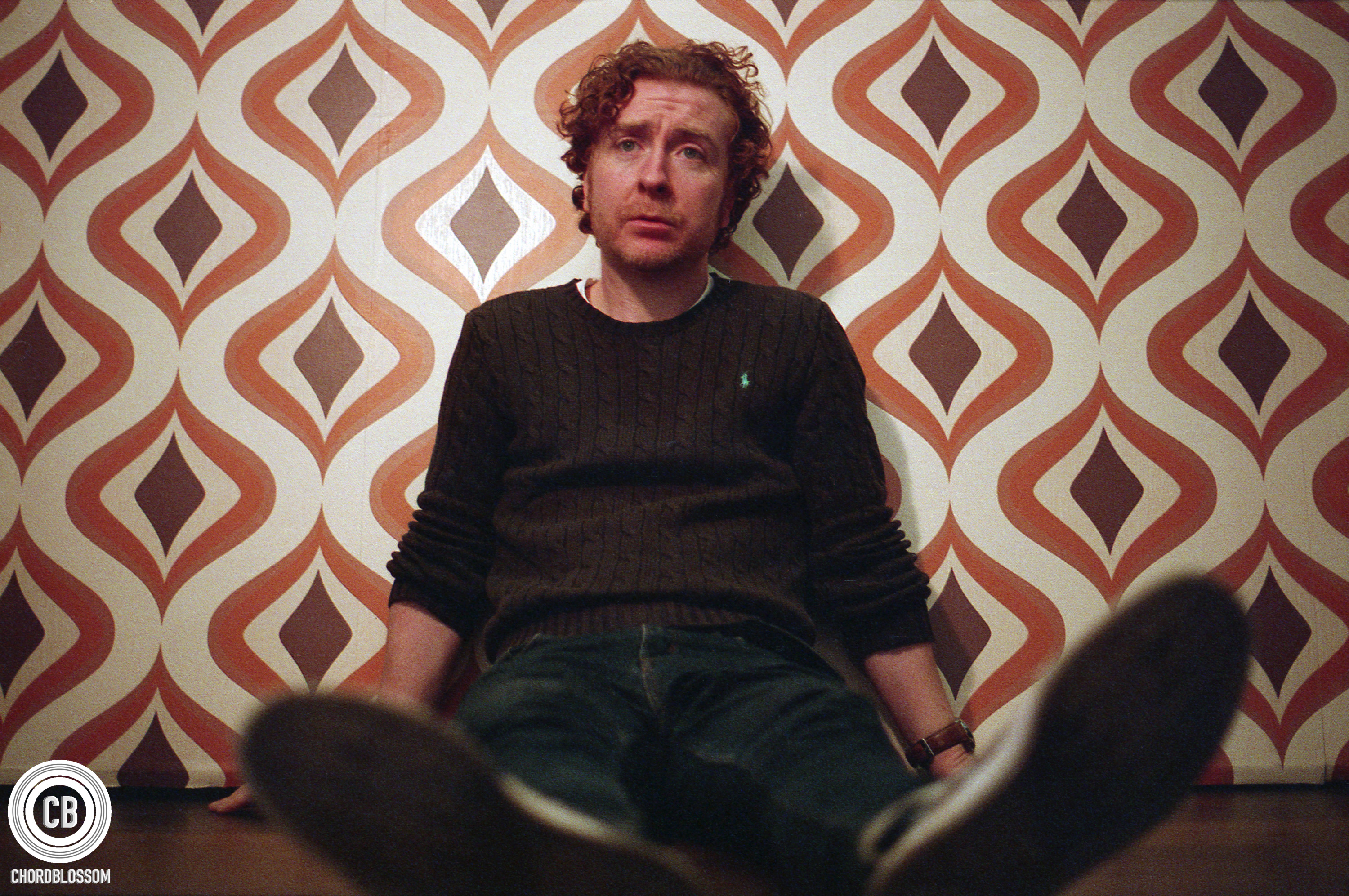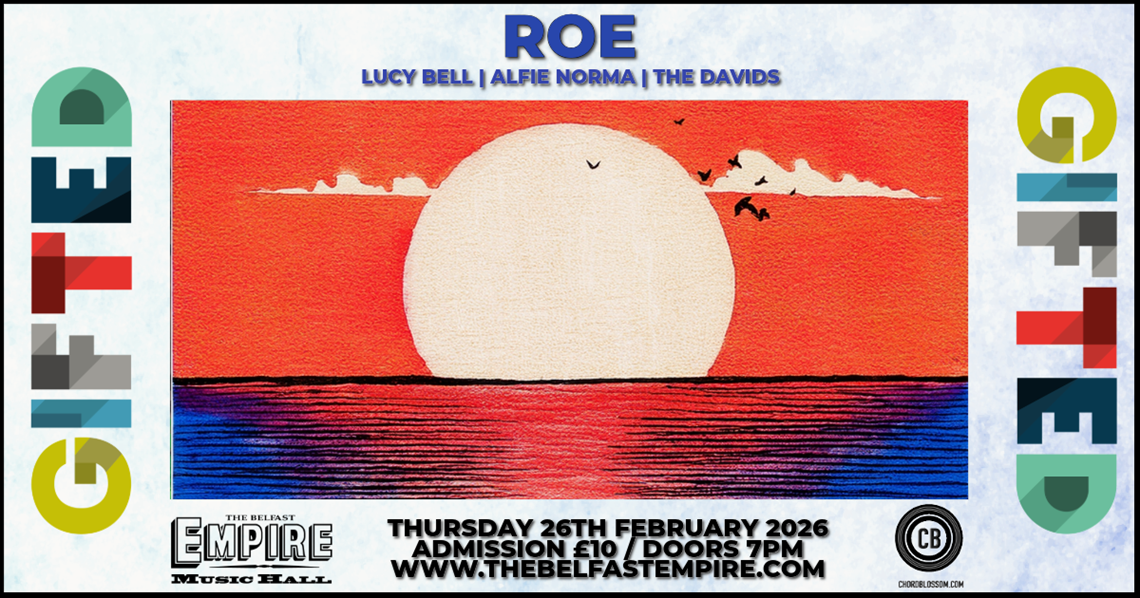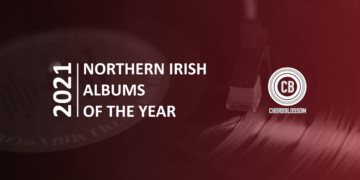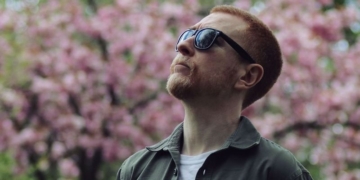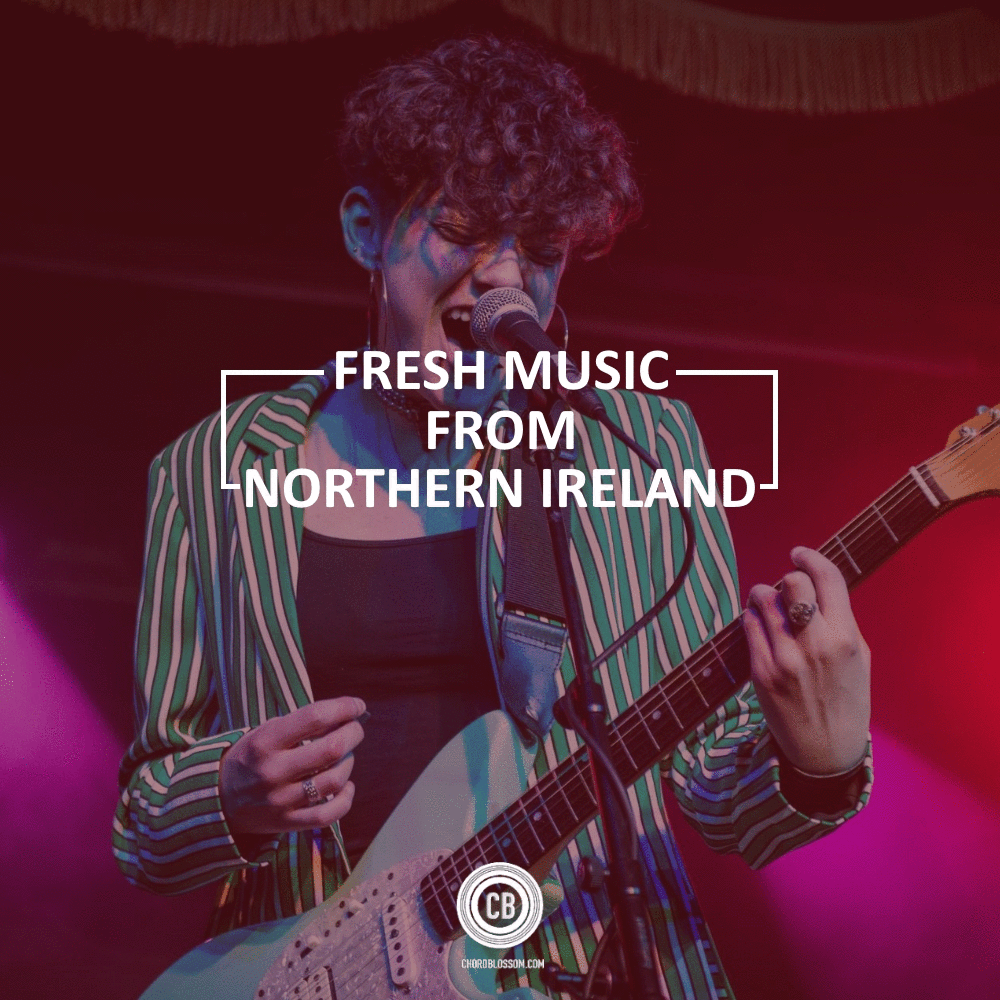Tony Wright has been in the music business for two decades. Teenage forays into music led to numerous musical stopping off points in his career but now he’s taken a different path as he prepares to release his first book this week. Chapter & Verse (ChorusVerse) is an autobiographical journey documenting Wright’s highs and lows, his unusual experiences around America and the exploration of himself as an artist.
Musically that journey began from a young age, with teenage band PepperBook being courted by the industry before the juggernauts of And So I Watch You From Afar. Wright was a founding member, leaving in 2011 not long after an assault in Vienna. He has released a number of solo records under VerseChorusVerse, including a successful collaboration with Derry jazz artist David Lyttle and has been on a creative streak this past year. Last year’s The Tragedy of Dr Hannigan album was ballsy and free, Wright adopting a bluesy caricature in the style of Tom Waits. He appeared in an even more parodic work, playing an over 30s musician out to make it in Michael McCullagh’s mini series The Also Rans. Then out of nowhere this summer, while artist-in-residence at The MAC, he released solo album Outro to some of his best reviews to date. That was the precursor to his memoir, with Wright setting out on tour over these next few months.
Aaron Cunningham sat down with Tony Wright to find out about ‘Chapter & Verse (ChorusVerse) or [Another D*ckhead] On The Road’, where he finds the time for all these creative pursuits, how the book came about and whether there’s a fear of the unknown with his new endeavour.
► Was there a formative moment where you decided you were going to write this book?
It was actually in The MAC in this exact room, David Lyttle [who Wright collaborated with on 2015’s Say I Do] was artist-in-residence here. It’s so weird how it all came full circle. We were in here and in between songs, David was talking to audience who were much more his audience than mine. “Check out more of Tony’s stuff, he lives a pretty weird life”. And I laughed and nobody else did. It was at that point I thought I suppose I do live a pretty weird life, I never thought of it that way before. That’s where the book starts. That was in 2015 and I didn’t start working on the book until 2016 because I was just ruminating on that for a long time.
► Once you had that idea, did you have the aim in mind of releasing the book?
I started writing down some shit that I’d been going through as way to purge it initially. And such is my way, I’d be self-deprecating about these things. I was looking back at traumatic events and finding comedy within them, philosophising on them a little bit but mainly finding the absurdity of the situation kind of funny. Then my music publishers wanted me to go and speak to their offices in New York, Nashville and LA. So when I was going over there, I thought I’m really just enjoying this writing, how it makes me feel, how I’m sorting things out in my head and how I’m enjoying a new discipline. And it just so happened that the trip to America coincided with me going, ‘what am I doing?’. I was 35 when I wrote the book, I’m 37 now. I had my first dalliances with the music industry when I was 15. I thought, ‘have I used these 20 years well?’. It was almost an early midlife crisis in a sense.
► Has there been a fear of the unknown to tackle something different?
I think since I’ve been doing music since I was so young, like playing guitar from 8, taking it seriously from 11 onwards, that’s just second nature to me now. I can be a bit lazy with it, I’ll pick up my guitar to write but I won’t practice. I always enjoyed creative writing at school and I enjoyed writing lyrics but taking on a whole narrative and prose was all very new to me. So I decided I would sit at table from 9.30am to 5.30 or 6pm at night and I’m going to do that five days a week. It was a dichotomy, some days it came easy and other days it was like pulling teeth. But it was fun to give myself that new challenge to do that. And since my life is going to strange places at odd times and travelling by plane, train and automobile, it was nice for me to be rooted in one place for a while and give myself a rota. Since I’ve been here at The MAC, I’ve been coming down and doing admin things. It was really weird finishing the book off in this room since it essentially started here.
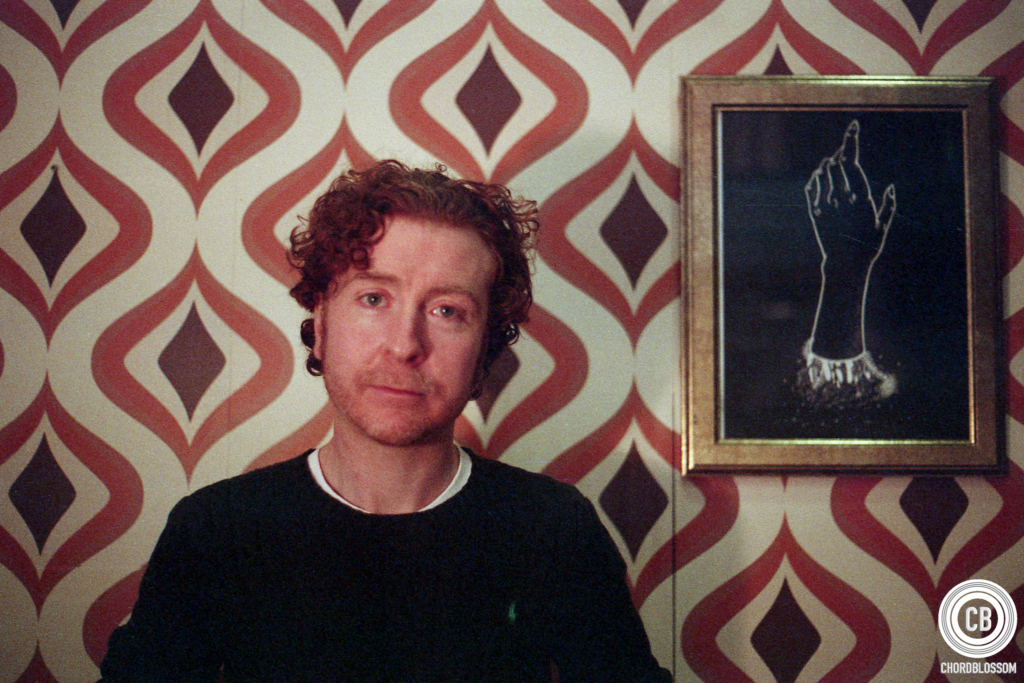
► Is the trip to America the centre piece of the book?
The book is in four parts. The first part would be my past, then part two is New York, part three is Tennessee and part four is California. They’re all as it happens, it’s very much in the present at that point. It’s got that Homeric or Illiad structure, it’s just loads of journeys. Three of them I end up in hospital, some of them I end up in Russia, another in haunted house on the north coast of Antrim or on tour with Gogol Bordello and without giving anything away there’s one very surreal part of the book. But it seemed to be this litany of journeys. That’s the form that the book took, there’s no real centre piece.
There’s a string of coincidence that ties the start and the end together. This sense of a quest of artistic approval I guess and a very weird line of coincidence started really at the start of New York and the final day in America. It made me feel I’m doing the right thing after all the doubt I’d been going through. This is too coincidental or maybe I’m just insane and grabbing patterns where I can.
► I came across a word that seems to increasingly apply to you, multi-hyphenate – songwriter, author, actor. Where have you found the time?
The god’s honest truth is I’ve very little else to be at. It’s only in the past year and a half where I’ve felt comfortable calling myself an artist. Some friends were telling me it, and I thought na, I’m just a guitar player. It was Mick [Son of the Hound, creator of The Also Rans] who said, think of what you’ve done and what you’re doing. You don’t have a nine to five, you don’t have a long term relationship, you don’t have an address of your own and things like that, and you’re putting out this work that people are interested in. Whether it be from bands in my past or things now, and I guess it’s just how I’ve always spent my time. Since I’ve made sacrifices in the sense of being alone, the whole Outro album is a meditation on loneliness and a solo life. It’s not a damning of loneliness, but just a reflection of the life I’ve had for the past while. It’s probably the most honest record I’ve ever put out and it reflects the lifestyle I’ve elected to have one way or another.
And then The Also Rans was just me doing a parody of myself in so many ways, a dickhead parody. I actually acted before I really got into music, it was something that I loved doing. Escapism is I guess what I kind of got into, because I was this little redhead kid up the north coast, I went to school in Portstewart but lived in Coleraine and didn’t feel quite connected anywhere. So I liked making little universes for myself.
► You mentioned loneliness in Outro, what I picked up on is a sense of freedom. Whether its your array of artistic pursuits or just the diversity of genres on your last album, is that something important to you?
It’s a bit of a cliché but punk rock is supposed to be freedom. VerseChorusVerse was meant to be an experiment in song, not having any defined genre. The first album is folky, the second bluesy and this one is very much alt rock in a lot of places but it does go in different tangents. It’s probably like my first band PepperBook. And the weird thing is Outro was recorded before Say & Do and the Dr Hannigan album. I’d been sitting on it for a while because my initial plan was to put it out with the book. So then I just asked David Lyttle if he wanted to write an album and we’ll record it in a day. Then Dean [The Tragedy of Dr Hannigan] had a studio and got in touch. We were going to write to a script and sell songs, very much music industry stuff, but I just couldn’t do it. And I said I’ve got all these other fun songs, let’s do that instead. Since it’s all I do I’ve got, not like Prince vault levels, but hundreds of songs just nestling there all the time.
► How is the book being released?
That’s why it’s taken so long, because I wanted to put it out with a publisher and I wanted the album to be a dangling carrot for it. But I got fed up waiting for publishers to get back to me. You send a song to a record label and it takes them a minute or two to get back and say no. You send a book to a publisher, you’re probably going to be waiting either or nine months. There were a few publishers that showed some interest but they’d be saying 2020 or 2021. I did a trial show at the Strand of me reading some material from it, and the text was really well received. That gave me the courage to think maybe there’s something in doing a theatre show with it, doing a tour and selling the book there. Again it was keeping with that DIY thing that I’ve always done, just because I’m too impatient. I wanted to get it out there on my terms, if people like it, amazing and if they don’t, it’s all on me.
► For a lot of musicians that DIY aspect is almost enforced, is it something you enjoy doing?
It’s both enforced and the way I like to do it. Especially with the book because it’s so personal. When I read it back I feel a little bit separate from the person in the book because I think writing it helped that person in a lot of ways. It’s strange because I know it’s me and it’s brutally honest in points.
► How are you dealing with that personal aspect in the book and also delivering it on stage?
There’s nothing in the book that I’m ashamed of, but there’s nothing selected in the launch that’s really hard to go over. There are parts of the book that were very hard to write just because it meant going back into a certain part of my past. There’s a part where I nearly got kicked to death in Austria seven years ago. Writing about it, having it flow etc is a strange thing to do. I remember dreading coming up to that point, I didn’t want a diet version of it. It was tough to go back there because I thought I was going to die that night. Those were the parts that were difficult. The other parts where I’m just making a fool of myself, I just find funny. They’re soul bearing but they’re rather more like comedy. We all make mistakes from time to time, it just so happens mine will be captured on print for everyone to look at.
► The show at the Strand may have put it in motion but how has the experience of putting together a live book show been? How has it differed from a an album launch for example?
It’s similar in a lot of ways because I have to pick my set. I have to decide what excerpts are going to work, how am I going to build an arc here? Especially since each of the stories have linked thematically with songs from my back catalogue. It’s not like a punk rock show where I’m your face all the time, there’s an ebb and flow to it. Some of its funny, some of its introspective and I’m tying those parts together. I’m doing a show with an interval, that’s just weird. I’m editing some down to work better with speech, and not wanting the audience to be bored. At the Strand I was trying to mix up the standard format of a singer-songwriter gig because I was bored with it. Someone coming out with a guitar, baring their soul and then leaving. I always enjoyed the bits in between the songs, people like Tom Waits where he would make up some bullshit story and go off. It was me trying to mix that in with my book.
It’s all a huge advertisement for my book. It’s just capitalism at its finest. Art capitalism if that’s such a thing. [said with tongue firmly in cheek]
Chapter & Verse (ChorusVerse) is launched Wednesday 17th October in The MAC, Belfast as part of Belfast International Arts Festival. The show then heads across Northern Ireland in November through Derry, Bellaghy, Newtownabbey, Downpatrick, Coleraine, Lisburn and finally Armagh on 1st February.
https://themaclive.com/event/chapter-versechorusverse
